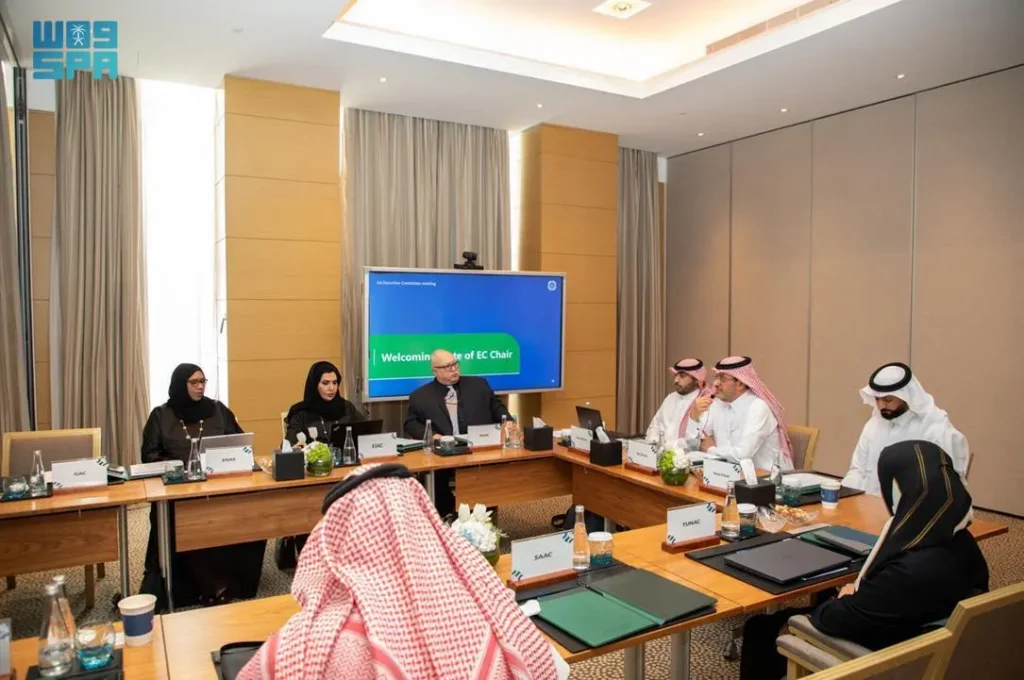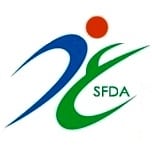
The Islamic Forum for Halal Accreditation Bodies (IFHAB) plays a crucial role in implementing a clear and transparent system for halal products and services in accordance with Sharia principles and technical requirements, aligning with global practices. This is achieved through the completion of quality infrastructure in member countries of the Organization of Islamic Cooperation (OIC), integrating with the Standards and Metrology Institute for the Islamic Countries (SMIIC), and establishing a mechanism for continuous improvement of IFHAB’s work. This is done by studying the best practices among member countries and relevant committees.
IFHAB will work towards ensuring the representation of various relevant stakeholders, including accreditation bodies, conformity assessment bodies, legislators, consumers, and others. It will also aim to open up new economic opportunities that enhance international trade, as well as create new global employment opportunities in specialized fields where elements of innovation and knowledge development are available.
OIC Global Halal Quality Infrastructure (OHAQ)
In the 21st meeting held on June 1st, 2021, SMIIC Board of Directors approved the Organization of Islamic Cooperation’s Halal Quality Global Infrastructure (OHAQ) through resolution number (03/2021), with the unanimous consent of the members of the SMIIC Board of Directors. In addition, SMIIC BoD requested of the General Secretariat – in coordination with the Chairman of the Board of Directors – to submit the approved document “Global Halal Quality Infrastructure of the Organization of Islamic Cooperation” officially to the OIC General Secretariat for further approval at the level of the OIC.
The Islamic Forum for Halal Accreditation Bodies (IFHAB)
The OIC issued a resolution No. 8/49 – LO granting the Islamic Forum for Halal Accreditation Bodies (IFHAB) the status of OIC Affiliated institution in the 49th Session of the Council of Foreign Ministers of the Organization of Islamic Cooperation (Moderation: Key to security and stability) held in Nouakchott, Islamic Republic of Mauritania, on 16 – 17 March 2023 (24-25 Shaaban 1444H).
Being guided by the principles and objectives stipulated in the OIC Charter, especially in the preamble, which states that one of the OIC’s objectives is “encourage friendly relations, mutual respect and cooperation between Member States and other States” and “promote cooperation among Member States to achieve sustained socioeconomic development for effective integration in the global economy, in conformity with the principles of partnership and equality,”
Welcoming the efforts of the concerned bodies in the Member States to accept the Halal certificates and the Halal logo for Halal products and services in accordance with Islamic Sharia,
Noting the importance of having a mechanism to achieve mutual recognition of the activities and results of conformity assessment processes in the field of Halal among Islamic countries that guarantee the protection of the credibility and efficiency of accreditation bodies in the field of Halal and are linked to the global system and are in line with it to ensure benefit from its services and outputs at the global level; and with the maturity of the quality system in the field of Halal, there is an urgent, necessary, and growing need to provide a system of mutual recognition and agreed upon to achieve mutual recognition of accreditation services among the Member States in the field of Halal, given the absence of a regional organization to cover the field of recognition between accreditation bodies in the Member States in the field of Halal,
Noting the need to contribute to creating a clear and transparent system for Halal products and services in accordance with Sharia regulations and technical requirements and in line with international practices and the need to establish a body concerned with cooperation between accreditation bodies to achieve mutual recognition between them, and to complete the infrastructure of bodies concerned with Islamic quality in the OIC Member States in cooperation and integration with the Standards and Metrology Institute for Islamic Countries (SMIIC),
Emphasizing the importance of advancing mutual recognition and promoting confidence in products and services bearing the Islamic Halal logo in the Member States and all world countries and providing standards of trust in commercial exchanges in the field of Halal at the level of the Member States and globally,
Referring to the need to harmonize accreditation procedures and practices in the field of Halal at the level of the Member States by providing a system for mutual recognition between accreditation bodies in the Member States and linking them with the international system, and the importance of cooperation with other regional and international forums that have complementary goals and enhancing reliance on the international conformity assessment system and benefiting from its development,
Emphasizing the importance of specialized training in this field and the formation of a broad base of expert assessors in the Member States in the field of conformity assessment of Halal products and services,
Recalling the approval of the SMIIC Board of Directors No. 03/2021 to establish this forum, which will work in compliance with the specifications and regulations issued by the SMIIC,
The Council:
1- Grants the Islamic Halal Bodies Accreditation Forum the Status of OIC Affiliated Institution;
2- Appreciates the Kingdom’s keenness to make this forum a success through its sponsorship of the budget of this forum;
3- Affirms that IFHAB conforms to the standards and regulations issued by the Institute of Standards and Metrology for Islamic Countries;
4- Calls upon the Member States, the OIC General Secretariat, and its affiliated bodies to cooperate with this forum to carry out the task entrusted to it;
5- Requests the Secretary-General to follow up on the implementation of this resolution and report thereon to the 50th Session of the Council of Foreign Ministers.
Objectives of IFHAB:
The main objectives of the Islamic Forum for Halal Accreditation Bodies (IFHAB) in member countries of the Organization of Islamic Cooperation (OIC) includes the following:
• Contributing to providing trust and credibility in products and services bearing the Halal logo in markets, including global markets.
• Providing standards of trust in trade exchanges in the field of Halal products and services at the level of OIC member countries, as well as globally.
• Involving relevant entities in the field of Halal accreditation in developing global Halal requirements, unifying procedures and practices of accreditation activities in the Halal field at the Islamic level, through the provision of a system (program) for mutual recognition among accreditation bodies in Islamic countries in this field, and linking them to the international system.
• Encouraging and assisting accreditation bodies in OIC member countries to meet the needs of their local markets and achieve international recognition of accredited Halal certificates, as well as cooperating with other regional and international forums to enhance integration in achieving the objectives.
• Enhancing reliance on the international conformity assessment system and benefiting from its development by providing specialized training in IFHAB’s activities, forming a broad base of expert evaluators in OIC member countries in the field of issuing Halal certificates for products and services, as well as capacity building among them.
• Facilitating the acceptance of conformity assessment services through multi-lateral recognition agreements, whether within a country or from markets in another country, without the need for additional testing. This serves the interests of Islamic societies and the global economy.
• Developing the infrastructure for accreditation in the field of Halal in OIC member countries, in order to obtain international recognition.
The importance of the role undertaken by the Islamic Forum for Halal Accreditation Bodies (IFHAB)
• Establishing Islamic Leadership: IFHAB aims to solidify the leadership of Islamic countries regionally and internationally in the Halal industry. By setting and promoting unified Halal standards, it positions Islamic countries as pioneers in Halal certification and accreditation.
• Economic Benefits: IFHAB recognizes the significant economic benefits of the Halal industry. According to the Global Islamic Economy Report 2019/2020, the global Muslim consumer population reached 1.8 billion, and Muslims spent an estimated $2.2 trillion in 2018 on Halal food, pharmaceuticals, and Sharia-compliant lifestyle products. This expenditure reflects a robust annual growth rate of 5.2%, and it is projected to reach $3.2 trillion by 2024, with a compound annual growth rate of 6.2%.



